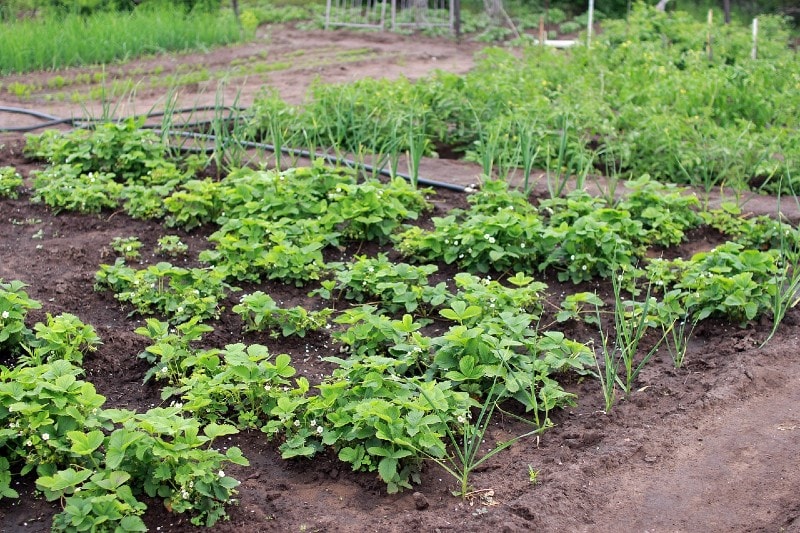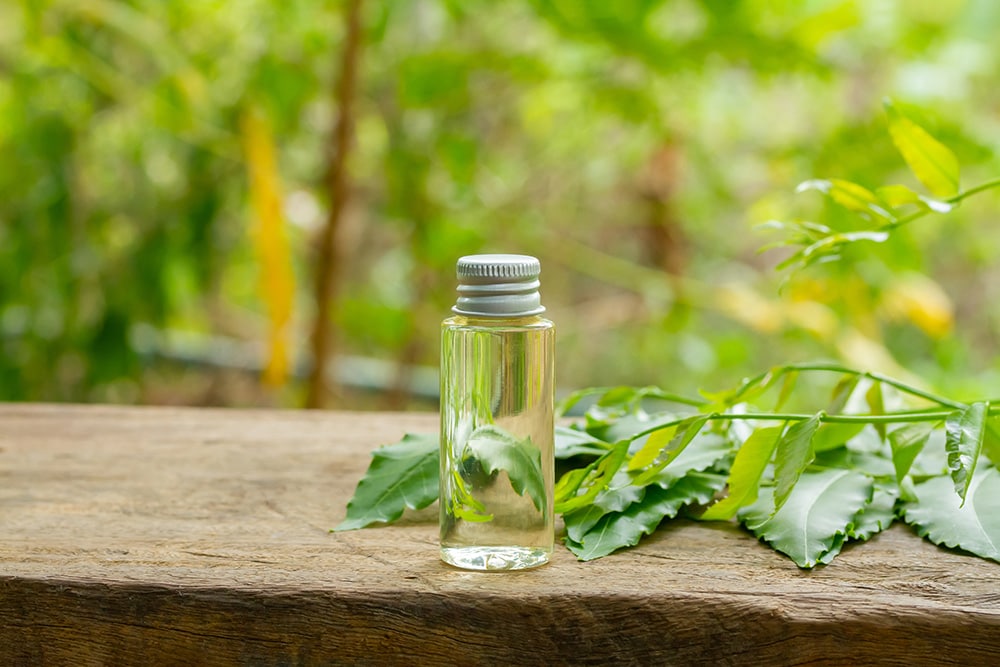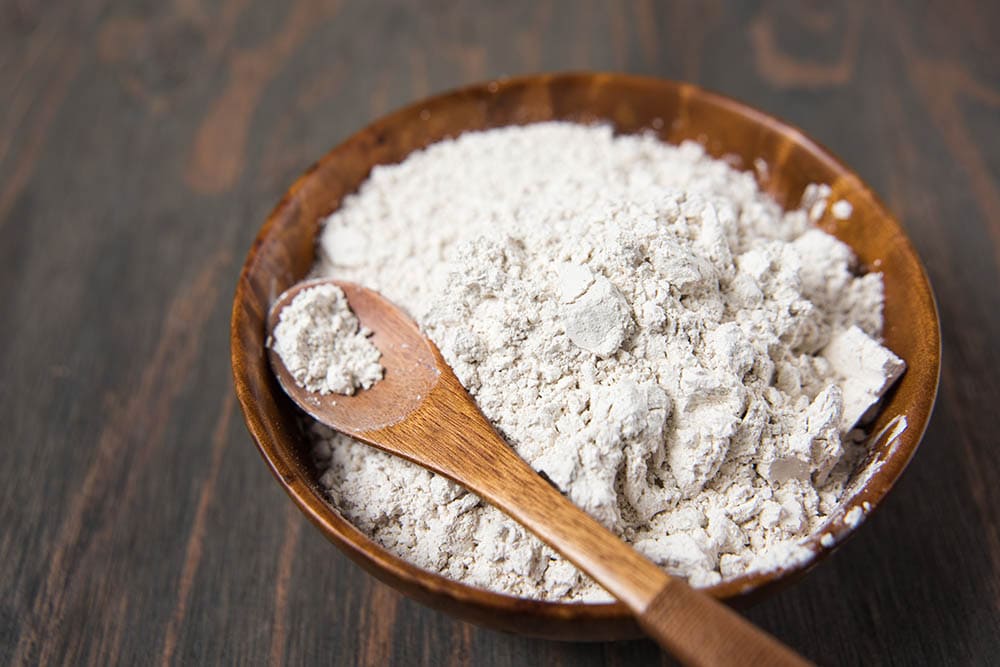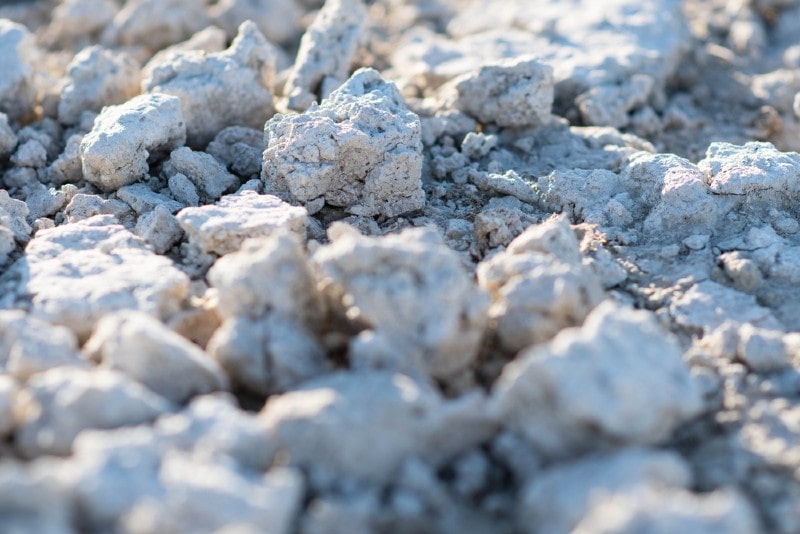7 Types of Organic Pesticides for Vegetable Gardens
-

- Last updated:

Organic gardening is becoming increasingly popular as people become more aware of the dangers of chemicals in their food and environment. But what many people don’t realize is that a variety of organic pesticides are available to help keep your garden healthy and free of pests.
There are two main types of organic pesticides: natural and synthetic. Natural pesticides include things like neem oil and Bacillus thuringiensis. Synthetic organic pesticides are created in a laboratory.
If you’re interested in using organic pesticides in your garden, this article goes over seven of the most popular options to consider.
The 7 Types of Organic Pesticides for Vegetable Gardens
1. Neem Oil

| Application: | Spray |
| Ingredients: | Salannin, azadirachtin |
| Best For: | Aphids |
Neem oil is derived from the neem tree, which is native to India. The oil has a strong smell and bitter taste, which makes it unpalatable to many pests. It’s commonly used to control aphids, whiteflies, beetles, and caterpillars.
Moreover, neem works by disrupting the life cycle of insects, meaning it can be effective at preventing pests from reproducing and destroying your vegetables.
Most neem oil products are low-cost, so you shouldn’t have any trouble finding an affordable solution to pest control in your vegetable garden. A product like Harris Neem Oil is less than $10 for a 20-ounce spray bottle.
- Not toxic to humans
- Budget-friendly
- Takes a while to work
- Loses effectiveness in rain and sunlight
2. Bacillus Thuringiensis (Bt)
| Application: | Spray or powder |
| Ingredients: | Various bacteria |
| Best For: | Caterpillars |
Bt is a naturally occurring bacterium that produces toxins that are deadly to many pests, including caterpillars and hornworms. The bacteria work by causing the insects to stop eating and eventually die. Bt is safe for humans and animals, making it a popular choice for organic gardeners.
Bacillus thuringiensis is another low-cost way to manage pests in your vegetable garden. You can pick up 32 ounces of Bonide Captain Jack’s Bt for around $15.
- Won’t harm bees, birds, or ladybugs
- Safe for people and pets
- Breaks down in sunlight
- Can take a few days to see the results
3. Diatomaceous Earth

| Application: | Powder |
| Ingredients: | Diatom silica |
| Best For: | Various |
Diatomaceous earth is a popular powder made from the fossilized remains of tiny algae-like creatures called diatoms. The powder is sharp and jagged, and it works by puncturing the exoskeletons of crawling insects like slugs and snails. This eventually leads to the insects dehydrating and dying.
What’s more, diatomaceous earth is a safe, non-toxic way to manage pests in your garden. You can find it at most hardware stores or online. Prices vary, but you can get a 2-pound bag of Harris Food-Grade Diatomaceous Earth for under $15.
- Safe for humans and pets
- Effective
- Cheap
- Needs to be reapplied after rain
4. Insecticidal Soap
| Application: | Spray |
| Ingredients: | Potassium salts, sodium |
| Best For: | Aphids, psyllids |
Insecticidal soap is an effective and safe method of controlling pests like aphids, spider mites, and whiteflies. The soap breaks down the exoskeleton of insects, which then causes them to dehydrate and eventually die.
You can make insecticidal soap at home or purchase it online or at a gardening store. We recommend trying Garden Safe’s Insecticidal Soap Insect Killer, which is OMRI listed for organic gardening.
Even better, it’s incredibly affordable. So if you’re on a tight budget but still need reliable pest control in your vegetable garden, give insecticidal soap a try.
- Safe for people and pets
- Easy to use
- Only effective against certain types of pests
5. Horticultural Oil
| Application: | Spray |
| Ingredients: | Petroleum oil |
| Best For: | Aphids |
Horticultural oil is another great option for controlling pests in your vegetable garden. It works by suffocating the insects it comes into contact with. It’s also effective against a wide range of pests, including white flies, leaf miners, spider mites, and aphids.
There are a few things to keep in mind when using horticultural oil, however. First, it can damage plants if used incorrectly, so be sure to follow the instructions on the label carefully. Second, it’s best to use horticultural oil in cooler weather, as warm temperatures can cause it to break down and become less effective.
Horticulture oil is a bit pricier than some of the other options on this list, but it’s worth the investment if you’re looking for an effective and safe way to control pests in your vegetable garden. A good option is Monterey’s Horticultural Oil.
- Can be used against a wide range of pests
- Low toxicity
- Can damage plants
- Not as effective against hard-bodied insects
6. Pyrethrin
| Application: | Concentrate |
| Ingredients: | Chrysanthemum |
| Best For: | Aphids |
Pyrethrin is made from chrysanthemum flowers and has been used as an organic pesticide for centuries. Pyrethrin is effective against a wide range of pests, including aphids and beetles.
Typically available as a powder, pyrethrin can be applied as dust or made into a spray. What’s more, it eliminates insects that are harmful to plants without harming the plants themselves.
While this is a more expensive solution to garden pest control, a little goes a long way. You can get 8 ounces of Bonide Pyrethrin for about $17, which is a concentrate that you mix to form a spray-on solution.
- Effective against a wide range of pests
- Made from natural ingredients
- Won’t harm plants
- More expensive than some other options
7. Kaolin Clay

| Application: | Powder |
| Ingredients: | White clay |
| Best For: | Beetles |
Known to many people as a skincare ingredient, kaolin clay is also great for gardens. This powdery white substance can be used as a natural pesticide to kill and repel various pests, including caterpillars, beetles, and weevils. When applied to plants, it forms a protective barrier that deters pests from eating the leaves or fruit.
It’s also relatively inexpensive—you can get a 1-pound bag of Monterey Kaolin Clay for around $11. It’s easy to use and safe for humans and animals, although you should still take care to avoid inhaling it.
Kaolin clay can be pretty messy to work with, so dress accordingly and wear a protective mask to prevent accidental inhalation.
- Effective against various pests
- Inexpensive
- Easy to use
- Can be messy
Vegetable Garden Care Tips
Caring for your vegetable garden doesn’t have to be a daunting task. With a little bit of planning and some basic knowledge, you can keep your garden healthy and productive all season long. In addition to using the organic pesticides listed above, be sure to practice other good gardening habits, such as:
- Crop Rotation: Crop rotation is a vital part of any vegetable garden care plan. By rotating your crops, you’ll help to prevent the build-up of pests and diseases in your soil.
- Mulching: Mulching your vegetable garden helps to conserve moisture, regulate soil temperature, and discourage weeds.
- Watering: Water is essential for the health of your vegetable garden. Be sure to water deeply and regularly, especially during periods of drought.
- Fertilizing: In addition to organic pesticides, use an organic fertilizer to give your vegetables the nutrients they need to grow.
- Weeding: Remove weeds from your garden as soon as they appear. Weeds compete with your vegetables for water, light, and nutrients.
- Harvesting: Regular harvesting helps to promote the continued production of your vegetables. Be sure to harvest at the peak of ripeness for the best flavor and nutrition.
With a little bit of care, your vegetable garden will be thriving in no time!
Conclusion
Organic gardening is a great way to grow healthy, nutritious vegetables. By using organic pesticides, you can keep your garden free of harmful chemicals. Be sure to rotate your crops, mulch your garden, water regularly, and fertilize with an organic fertilizer. Your efforts will ensure a bountiful harvest of delicious vegetables all season long!
Featured Image Credit: Irina_kukuts, Pixabay
Contents

